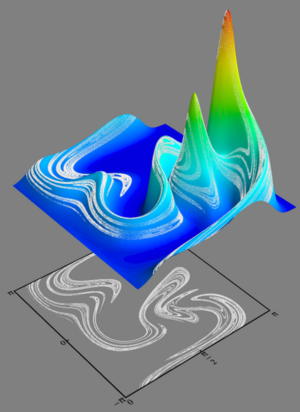Prof. Dr. Dr. h.c. mult. Peter Hänggi
University of Augsburg, Institute of Physics, Germany

The main objective of this advanced study group is to explore in greater detail the role of dissipation in complex (many-body) quantum systems such as the concept of quantum attractors; i.e., strongly non-equilibrium asymptotic states of open quantum dissipative systems, being subjected to (controllable) dissipation and alike the consequences for the dynamics when time-periodically perturbations are applied in addition.
Within the physics of coherent quantum mechanics it is an established fact that time-periodic modulations can create non-equilibrium asymptotic states, known as Floquet states; – the latter are distinctly different from the states exhibited by the same system in the long time, stationary limit. Modulations thus open up the doorway towards novel phenomena and effects, which often are out of reach with time-independent Hamiltonians. For example, temporal periodic modulations are utilized in creating topological insulators in semiconductor wells, to synthesize Majorana fermions in quantum wires, and to engineer gauge fields for spinless neutral atoms.
What are those new features that may emerge in periodically modulated quantum systems when these are interacting with one or more environments (i.e., open quantum systems)? More specifically, what is the potential for new phenomena exhibited by a dissipative quantum system that additionally is strongly driven in time in a non-adiabatic manner? As for now, there is no unambiguous answer available nor do we have a universal recipe to obtain the answer. The objective it far too broad and the question, in fact, branches out into in many specific sub-questions. Within the framework of the ASG, we plan to address, among yet others, the following issues:

Quantum attractor (colored) versus classical attractor (white dots); from M. Hartmann, D. Poletti, M. Ivanchenko, S. Denisov, and P. Hänggi, Asymptotic Floquet states of open quantum systems: the role of interaction, New J. Phys.19, 083011 (2017).